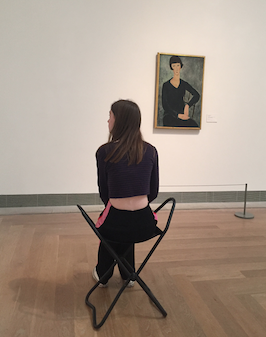I just blinked. Did I miss it? Actually I experienced that blink. I know I think a lot, and with words, their meaning, understanding, and having or breaking through limitations of contexts and definitions is important. Technology continues to develop, and with every blink that goes by we find more and more ways to facilitate connection across time and place, yet this does not supersede the physicality of living. In experiencing learning and moving into the next phase of how we engage with technology, I believe a key component will be the synthesis of the online and the world beneath our feet.
There have been different conceptions of knowledge and learning as long as writing can recall, from Plato, to Aristotle, to the the much for recent discussions of Horton and Freire. The interaction and intersection of learning and knowledge are important and the definitions and understandings of the terms will influence how we shape and use on and off-line methods and systems. It struck me in the introduction to the topic of ‘experience’ Stephen mentioned creation of knowledge. I remembered reading in Toward Personal Learning (see p 422-472 in particular) the premise of knowledge as recognition. I like this as a concept, and also in terms of supplementing the context in which that ‘creation of knowledge’ was used. I’m going to substitute ‘recognition’ for ‘knowledge’, as for me it makes it more of an awareness and a process that is produced as opposed to a thing:
And so much of education continues to rely on indirect methods depending on knowledge transfer – reading, lectures, videos – rather than hands-on practice and creation of recognition (as in understanding).
My mincing Stephen’s words may change his intended meaning – I hope it hasn’t missed the mark too much. I don’t think he meant knowledge as ‘things’
Further along when discussing experience, there is a mention of technology and how using it can facilitate some essential and exemplary practices like:
the ability of teachers (and role models) to model and demonstrate successful practice and the need for learners to practice and reflect on their learning in that environment
(parentheses are mine)
For me these need to be addressed outside the concept of integration with or within technology; by themselves these are big asks, and not everyone is comfortable or well-versed in either demonstrating or encouraging and engaging with reflection. Perhaps this is a bit of lag remaining from the old-school knowledge (facts) transfer approach to ‘learning’. Adding the ‘in that environment’ at the end of the sentence above, to me suggests integration of learning and reflection with place and space. This could be in person or online. Regardless of where, the idea of reflecting on (and in) learning is about being aware and recognising processes – experience: thinking, feeling, doing, and resulting impact – not just now, but moving forward. It is certainly more than facts or resultant ‘things’ content creation.
I like very much the idea that the act of creating content, the doing, also becomes content. Stephen uses the example of livestreaming, where the video is then left as content and learning/doing artefact. With my creative hat on I would like to think that all doing is some form of creation, making waves in the air, in our minds, and that some of it remains openly visible. I like this image of learning:
“the residue of experience. It is what remains with us when an activity is over, the skills and understanding we take away.”
(Swannick, 1999, p84)
